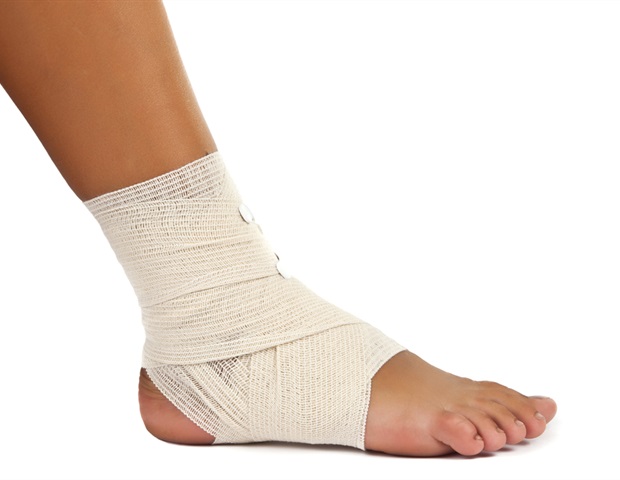
In an evolving health landscape, emerging research continues to highlight concerns that could impact everyday wellbeing. Here’s the key update you should know about:
A novel ε-poly-L-lysine-loaded sodium-alginate/gelatin hydrogel (PSG15) has shown exceptional promise in accelerating the healing of infected wounds. This multifunctional injectable hydrogel delivers robust antibacterial properties while regulating macrophage polarization and stabilizing the skin microbiota.
It significantly inhibited bacterial growth, including that of E. coli and S. aureus, and promoted tissue regeneration in infected wounds. In animal models, PSG15 enhanced angiogenesis, collagen deposition, and wound closure. These findings demonstrate the potential of PSG15 as an effective treatment for infected wounds, offering both antibacterial action and microbiota stabilization to improve healing outcomes.
Infected wounds, particularly those caused by Escherichia coli and Staphylococcus aureus, pose significant challenges in clinical wound care. Traditional treatments often rely on antibiotics, but increasing bacterial resistance and potential toxicity limit their effectiveness. Hydrogels have emerged as a promising alternative due to their ability to deliver therapeutic agents locally.
However, most existing hydrogels fail to address the dual challenge of infection and tissue repair effectively. This study explores a novel hydrogel that integrates ε-poly-L-lysine, a potent antimicrobial peptide, into a sodium alginate/gelatin matrix, offering a solution for both infection control and wound healing.
Researchers from the Chinese PLA General Hospital, the Beijing Institute of Radiation Medicine, Qinghai University, and Peking Union Medical College Hospital have developed a cutting-edge hydrogel, ε-PLL@SA/Gel (PSG15), that not only fights infections but also supports the healing of infected wounds by regulating the skin microbiota.
Published (DOI: 10.1093/burnst/tkaf037) in Burns & Trauma in May 2025, the study demonstrates the hydrogel’s ability to accelerate wound closure, promote angiogenesis, and reduce inflammation in murine models infected with E. coli and S. aureus. The results suggest PSG15 as a promising candidate for clinical applications in wound management.
The PSG15 hydrogel was synthesized by incorporating ε-poly-L-lysine (ε-PLL) into sodium alginate/gelatin (SA/Gel) hydrogels using calcium chloride as a crosslinking agent. The hydrogel was tested for mechanical properties, biocompatibility, and antibacterial efficacy in vitro and in vivo. The results showed that PSG15 exhibited excellent injectability, self-adhesiveness, and mechanical strength. The hydrogel significantly reduced the bacterial load of both E. coli and S. aureus by 89.53% and 92.21%, respectively.
In vivo, PSG15 enhanced wound healing by promoting angiogenesis and collagen deposition. Histological analysis revealed better tissue regeneration in PSG15-treated wounds, with increased formation of new blood vessels and more organized collagen fibers compared to untreated controls.
Additionally, PSG15 regulated macrophage polarization, increasing the expression of the M2 marker (CD206) while decreasing the M1 marker (CD80), suggesting its role in modulating the inflammatory response. Furthermore, the hydrogel maintained the diversity of the skin microbiota, preventing the overgrowth of pathogenic bacteria.
The PSG15 hydrogel represents a significant advancement in wound care by integrating both antimicrobial properties and microbiota regulation. This dual approach not only accelerates healing but also minimizes the risk of chronic infections, which are a major challenge in wound management. We are optimistic that PSG15 will provide a safer, more effective treatment option for infected wounds in clinical settings.”
Dr. Chaoji Huangfu, Study Corresponding Author, Beijing Institute of Radiation Medicine
The multifunctional PSG15 hydrogel offers a novel solution for managing infected wounds, addressing both infection control and tissue regeneration. With its proven antibacterial effects and ability to modulate the skin microbiota, this hydrogel could reduce the reliance on systemic antibiotics, helping combat the growing issue of antibiotic resistance.
Furthermore, its biocompatibility and non-toxicity make it a viable candidate for clinical use. Future research should focus on testing the hydrogel’s efficacy in chronic wound models, such as diabetic ulcers, and exploring the underlying mechanisms of its interaction with the skin microbiota to optimize its therapeutic potential.
Sources:
Journal reference:
Zu, X., et al. (2025). A multifunctional injectable ε-poly-L-lysine-loaded sodium-alginate/gelatin hydrogel promotes the healing of infected wounds by regulating macrophage polarization and the skin microbiota. Burns & Trauma. doi.org/10.1093/burnst/tkaf037

